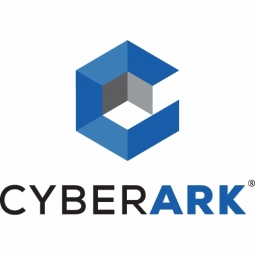Customer Company Size
Large Corporate
Region
- Europe
Country
- Netherlands
Product
- CyberArk Privileged Access Manager Solution
Tech Stack
- CyberArk
- Qualys
- ArcSight
Implementation Scale
- Enterprise-wide Deployment
Impact Metrics
- Cost Savings
- Customer Satisfaction
- Productivity Improvements
- Digital Expertise
Technology Category
- Cybersecurity & Privacy - Identity & Authentication Management
- Cybersecurity & Privacy - Security Compliance
Applicable Industries
- Finance & Insurance
Applicable Functions
- Business Operation
Use Cases
- Remote Control
Services
- System Integration
- Cloud Planning, Design & Implementation Services
About The Customer
Rabobank is a major global financial services provider, offering banking, asset management, leasing, insurance, and real estate services. The company has approximately 59,000 employees, serving around 10 million customers across 48 countries. As a market leader in the financial services industry, Rabobank is committed to adhering to industry regulations and imposing strict security policies and procedures to ensure watertight security across all its operations. The company operates in one of the most competitive and tightly regulated sectors in the world, dealing with highly sensitive information on a daily basis. Rabobank International, the wholesale banking and international retail banking division of Rabobank Group, plays a crucial role in the company's global operations.
The Challenge
Financial services companies deal with highly sensitive information on a day-to-day basis, with customer and corporate data at the heart of routine operations. These businesses operate in not only one of the most competitive industries, but also one of the most tightly regulated sectors in the world. Rabobank prides itself on being a market-leader and as such not only adheres to industry regulations, but imposes strict security policies and procedures on itself to ensure watertight security across all of its operations. Following an internal review of its systems, Rabobank International, Rabobank Group’s wholesale banking and international retail banking division, saw a major opportunity to update and improve security procedures, as well as its operational efficiency, by replacing its existing manual process for managing passwords. Rabobank International sought a security solution that could remove the physical labour of managing highly privileged passwords manually, while simultaneously augmenting its operational efficiency – reducing costs and boosting productivity – and dramatically improving security standards.
The Solution
Rabobank International searched the market for a vendor that matched not only its security and scalability needs, but also its drive to be a market-leader. Following an extensive evaluation process involving multiple vendors, Rabobank International selected the CyberArk Privileged Access Manager Solution to be rolled out across Europe. The deployment itself was a quick and smooth process, right from initial proof of concept to going live. The CyberArk solution was easily integrated with existing IT systems at Rabobank International, including the replacement of redundant systems. The CyberArk solution enabled Rabobank International to remove the process of physically placing passwords into a safe, never to be updated. This also eliminated a major window of opportunity for passwords to be lost – by accident or otherwise – and helped the bank to meet stricter audit requirements. The CyberArk solution enables Rabobank International to enforce an enterprise-wide policy, managing the entire lifecycle of shared and privileged accounts across the business. In addition, the solution can be easily integrated with other vendors’ solutions. The CyberArk solution requires only limited support resources to manage and run the solution, offering reduced total cost of ownership when compared to a manual password management system. This also makes the process of password management and retrieval far simpler.
Operational Impact
Quantitative Benefit

Case Study missing?
Start adding your own!
Register with your work email and create a new case study profile for your business.
Related Case Studies.

Case Study
Real-time In-vehicle Monitoring
The telematic solution provides this vital premium-adjusting information. The solution also helps detect and deter vehicle or trailer theft – as soon as a theft occurs, monitoring personnel can alert the appropriate authorities, providing an exact location.“With more and more insurance companies and major fleet operators interested in monitoring driver behaviour on the grounds of road safety, efficient logistics and costs, the market for this type of device and associated e-business services is growing rapidly within Italy and the rest of Europe,” says Franco.“The insurance companies are especially interested in the pay-per-use and pay-as-you-drive applications while other organisations employ the technology for road user charging.”“One million vehicles in Italy currently carry such devices and forecasts indicate that the European market will increase tenfold by 2014.However, for our technology to work effectively, we needed a highly reliable wireless data network to carry the information between the vehicles and monitoring stations.”

Case Study
Safety First with Folksam
The competitiveness of the car insurance market is driving UBI growth as a means for insurance companies to differentiate their customer propositions as well as improving operational efficiency. An insurance model - usage-based insurance ("UBI") - offers possibilities for insurers to do more efficient market segmentation and accurate risk assessment and pricing. Insurers require an IoT solution for the purpose of data collection and performance analysis

Case Study
Smooth Transition to Energy Savings
The building was equipped with four end-of-life Trane water cooled chillers, located in the basement. Johnson Controls installed four York water cooled centrifugal chillers with unit mounted variable speed drives and a total installed cooling capacity of 6,8 MW. Each chiller has a capacity of 1,6 MW (variable to 1.9MW depending upon condenser water temperatures). Johnson Controls needed to design the equipment in such way that it would fit the dimensional constraints of the existing plant area and plant access route but also the specific performance requirements of the client. Morgan Stanley required the chiller plant to match the building load profile, turn down to match the low load requirement when needed and provide an improvement in the Energy Efficiency Ratio across the entire operating range. Other requirements were a reduction in the chiller noise level to improve the working environment in the plant room and a wide operating envelope coupled with intelligent controls to allow possible variation in both flow rate and temperature. The latter was needed to leverage increased capacity from a reduced number of machines during the different installation phases and allow future enhancement to a variable primary flow system.

Case Study
Automated Pallet Labeling Solution for SPR Packaging
SPR Packaging, an American supplier of packaging solutions, was in search of an automated pallet labeling solution that could meet their immediate and future needs. They aimed to equip their lines with automatic printer applicators, but also required a solution that could interface with their accounting software. The challenge was to find a system that could read a 2D code on pallets at the stretch wrapper, track the pallet, and flag any pallets with unread barcodes for inspection. The pallets could be single or double stacked, and the system needed to be able to differentiate between the two. SPR Packaging sought a system integrator with extensive experience in advanced printing and tracking solutions to provide a complete traceability system.

Case Study
Transforming insurance pricing while improving driver safety
The Internet of Things (IoT) is revolutionizing the car insurance industry on a scale not seen since the introduction of the car itself. For decades, premiums have been calculated using proxy-based risk assessment models and historical data. Today, a growing number of innovative companies such as Quebec-based Industrielle Alliance are moving to usage-based insurance (UBI) models, driven by the advancement of telematics technologies and smart tracking devices.
Case Study
Enhancing Security and Compliance in Remitly's Global Money Transfer Service with Fastly
Remitly, an online remittance service, was faced with the challenge of securing its proprietary global transfer network. The company needed a security solution that could meet PCI requirements and protect customers' sensitive transactions through its mobile application. The solution had to be capable of defending against new and emerging attack types without impacting performance. Remitly also had to deal with irregular traffic patterns, such as a sudden spike in account transfers from a small network segment on the Pacific coastline of South America. The company needed to determine in real time whether such traffic indicated an attack or valid requests. A traditional web application firewall (WAF) would not be able to distinguish this traffic, potentially leading to customer frustration if the IP was blacklisted.







